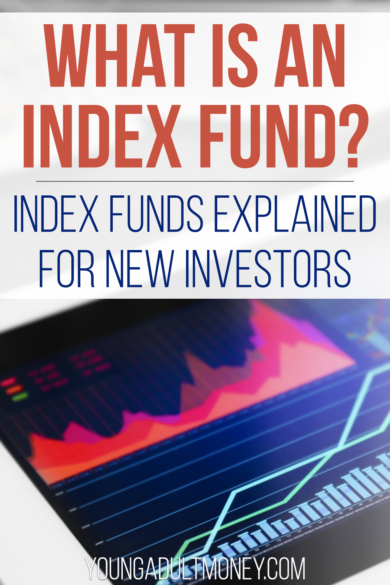 In August, for the first time ever, there was more money in passive index funds than in actively managed funds.
In August, for the first time ever, there was more money in passive index funds than in actively managed funds.
I think this is a good trend, as I practically beg new investors to keep it simple.
The easiest way to keep it simple is by not investing in individual stocks. There are also way too many investors getting ripped off by the high fees that come with actively managed funds, a majority of which do not outperform a passive index over the long-term.
To new investors this jargon can be confusing.
I was telling a friend recently about index funds, and I got a blank stare. He jokingly said, “index cards? Is that what you are talking about?”
Investing can be intimidating because of how some people over-complicate it. If you watch “Made Money” you would think stock picking is something everyone should be doing. In reality, most investors – and certainly new investors – would benefit from focusing on low-cost index funds that track the broad stock market.
Let’s start by answering the question: what is an index fund?
Index Funds Explained
Index funds are mutual funds or Exchange-Traded Funds (ETFs) set up to track the performance of a benchmark index, such as the S&P 500. Said differently, they move up or down in price based on a large basket of stocks. This is beneficial because you spread your exposure across many companies. Compare that to investing in only a handful of individual companies. If one of those companies failed and went bankrupt, a large portion of your investment portfolio would be wiped out. With an index fund exposure is spread out across many, many companies, reducing your exposure and risk related to any one company.
Many index funds are capitalization weighted, or cap-weighted, which means that the larger components are given a larger weighting. For example, if you look at the Fidelity total stock market index fund you will see that the top holdings are, among other large companies, Microsoft, Apple, Amazon, and Facebook. The reason they make up a higher percentage than say, a small company whose market capitalization is only $10 million, is because having the same exposure to Apple as a $10 million company would give too much exposure to the small company.
Index funds are passively managed, meaning there is not a fund manager trying to “beat the market.” This allows the funds to have low fees, sometimes as low as 0.00% (for example, Fidelity’s total stock market index fund FZROX). The problem with actively managed funds is that they not only have to beat a benchmark index, but they also have to beat the index plus the fee they charge, which can be as much as 2% or more.
Here are a few examples of index funds. Notice the low fees charged.
- Fidelity ZERO Total Market Index Fund (FZROX)
Objective (from the Fidelity website): The fund seeks to provide investment results that correspond to the total return of a broad range of U.S. stocks.ETF or Mutual Fund: Mutual Fund
Expense Ratio (Fees): 0.00%
Minimum Investment: $0
- Vanguard Total Stock Market Index Fund Admiral Shares (VTSAX)
Objective (from the Vanguard website): Designed to provide investors with exposure to the entire U.S. equity market, including small-, mid-, and large-cap growth and value stocks..ETF or Mutual Fund: Mutual Fund
Expense Ratio (Fees): 0.04%
Minimum Investment: $3,000
- Vanguard Total Stock Market ETF (VTI)
Objective (from the Vanguard website): Vanguard Total Stock Market ETF is an exchange-traded share class of Vanguard Total Stock Market Index Fund, which employs an indexing investment approach designed to track the performance of the CRSP US Total Market Index, which represents approximately 100% of the investable U.S. stock market and includes large-, mid-, small-, and micro-cap stocks regularly traded on the New York Stock Exchange and Nasdaq.ETF or Mutual Fund: Mutual Fund
Expense Ratio (Fees): 0.03%
Minimum Investment: Cost of 1 Share is approximately $150
You can find a lot of index fund options at both Vanguard and Fidelity. Vanguard has made a name for itself in the low-fee index fund space, and many investors use them. Fidelity has recently rolled out more options for index fund investing as well.
Resources and Tools for New Investors
To invest you need positive cash flow that can be diverted to index funds. I wrote a post outlining 5 ways to find cash to invest in the stock market that may be helpful if one of your goals is to invest more.
I also created a spreadsheet you can use to quickly and easily analyze your 401k or 403b investment options. You can grab a free copy here.
Bottom line on index funds: Index funds offer investors the benefit of low fees and lower risk due to broad exposure to the market.


We have been in index funds since we started investing just out of college, and 25+ years later we haven’t regretted that decision. I don’t kid myself that I am willing to put in the research, time and discipline to even hope that actively investing my money in securities will provide a better return. I am better off focusing on my career where I have specific expertise and real estate where I have a lot of interest. It’s important to be invested but you don’t have to actively invest, so the rise of index funds is good news!